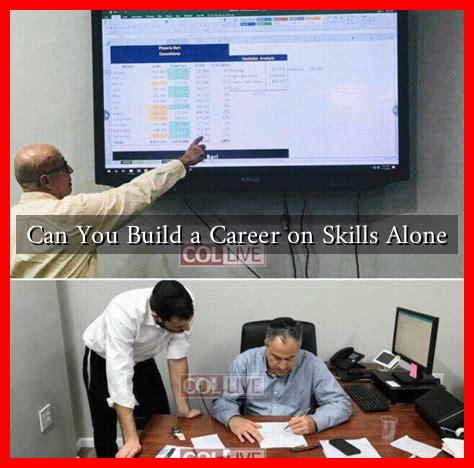-
Table of Contents
Can You Build a Career on Skills Alone?
In today’s fast-paced and ever-evolving job market, the question of whether one can build a successful career based solely on skills is more relevant than ever. With the rise of technology and the gig economy, many individuals are finding that traditional educational pathways are not the only route to career success. This article explores the importance of skills in career development, the role of education and networking, and provides insights into how to effectively leverage skills for career advancement.
The Importance of Skills in the Modern Job Market
Skills have become the cornerstone of employability in many industries. According to a report by the World Economic Forum, over 50% of all employees will need reskilling by 2025 due to the rapid changes in technology and job requirements. This statistic underscores the importance of continuous skill development.
- Technical Skills: Proficiency in specific tools and technologies is crucial. For example, software developers must stay updated with programming languages and frameworks.
- Soft Skills: Communication, teamwork, and problem-solving abilities are equally important. Employers often prioritize these skills during the hiring process.
- Transferable Skills: Skills such as critical thinking and adaptability can be applied across various roles and industries, making them invaluable.
Case Studies: Success Stories Built on Skills
Numerous individuals have successfully built their careers based on skills rather than traditional educational credentials. Here are a few notable examples:
- Elon Musk: The CEO of SpaceX and Tesla is known for his self-taught knowledge in engineering and physics. Musk’s success illustrates that skills and practical experience can outweigh formal education.
- Richard Branson: The founder of the Virgin Group struggled in school but excelled in entrepreneurship. His ability to identify opportunities and lead teams has been pivotal to his success.
- Freelancers and Gig Workers: Many freelancers, such as graphic designers and writers, have built lucrative careers by honing their skills and leveraging online platforms like Upwork and Fiverr.
The Role of Education and Networking
While skills are essential, education and networking also play significant roles in career development. Here’s how they contribute:
- Formal Education: While not always necessary, degrees can provide foundational knowledge and credibility. Certain professions, such as medicine and law, require formal qualifications.
- Online Courses and Certifications: Platforms like Coursera and Udacity offer courses that can enhance skills and make candidates more attractive to employers.
- Networking: Building professional relationships can open doors to job opportunities. Engaging in industry events, online forums, and social media platforms like LinkedIn can help individuals connect with potential employers.
Challenges of Relying Solely on Skills
While skills are crucial, there are challenges associated with relying solely on them for career advancement:
- Market Saturation: In some fields, the competition is fierce, and having skills alone may not be enough to stand out.
- Lack of Recognition: Some employers may still prioritize degrees over skills, particularly in traditional industries.
- Limited Career Growth: Without a formal educational background, individuals may find it challenging to move into higher-level positions.
Conclusion: A Balanced Approach to Career Development
In conclusion, while it is possible to build a successful career based on skills alone, a balanced approach that includes education and networking is often more effective. Skills are undeniably important in today’s job market, but they should be complemented by formal education and strong professional connections. As the job landscape continues to evolve, individuals must remain adaptable and committed to lifelong learning to thrive in their careers.
For more insights on career development and skill enhancement, consider exploring resources from the World Economic Forum and other educational platforms.

